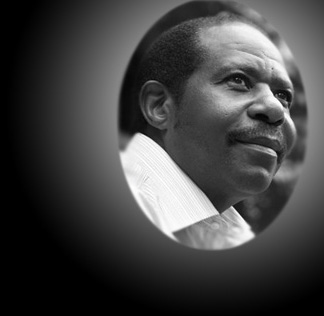‘’I’ve become a humanitarian and I never thought I would become one. And, as a humanitarian, I wanted to take this message on a wider scale, to raise awareness of what happened in my country so that the international community can help others who suffer now.”
-Paul Rusesabagina
DARFUR AND THE SUDAN CONFLICT:
Nearly 10 years after the horrific killings in Rwanda, similar acts of genocide began occurring in the Northeast African country of Sudan (specifically in the western region of Darfur), a nation with the tenth largest land area in the world. Janjaweed militia, backed by the Sudanese government, have been pillaging, raping, and destroying villages throughout the region, along with targeting specific racial and ethnic groups. Despite a peace agreement that was brokered in May 2006, fighting has continued between the rebel forces (consisting largely of the New Redemption Front) and the government, unofficially represented by the Janjaweed. As a result of the highly costly civil war, 80 infants, on average, die each and every day, according to UNICEF, due to starvation and malnutrition. Meanwhile the UN planned, in late 2006, to send a peacekeeping force, consisting of 17,300 strong, into Sudan to replace the ill-equipped African Union’s own peacekeeping unit of 7,000. Recent efforts have been made to merge the two, thereby creating an effective UN-AU joint peacekeeping force, but the US proposal of doing so is expected to meet stern opposition from within the UN Security Counsel. Meanwhile, politicians, worldwide, continue to stall the process to halt the fighting and ethnic cleansing in the region, while UN Secretary-General Ban Ki-moon hesitates to place potentially crippling (but most likely effective) economic and military sanctions on a Sudanese government that still fails to acknowledge what is going onside within its own borders.
Paul Rusesabagina has taken it upon himself to campaign for something more to be done. With the release of Hotel Rwanda in 2004, and the publication of his autobiography, An Ordinary Man, in 2005, Rusesabagina has been using his newfound fame and celebrity to crusade for Sudanese atrocities to be stopped (the conflict is currently in its fourth year) before it becomes too late. In recent interviews, Rusesabagina has compared the stage at which the Sudan conflict is now to the four years (1990-94) preceding the Rwandan genocide of 1994. Rusesabagina explained that it is frighteningly comparable to ‘’when the rebels on the hills were butchering men, inviting them for meetings, killing them, killing young men, inviting them to join their army…’’, all conditions that existed in Rwanda before the genocide started in early April 1994. As Rusesabagina has said repeatedly, ‘’Today, in Darfur, you have about two million people displaced…in that part of the world, and the whole world…seems not to care.’’
Rusesabagina believes that rather than a peacekeeping force that would involve the African Union (the current so-called ‘’solution’’) the UN must instead send in a force of at least 10,000 troops, a force that would be utilized only under extreme circumstances. Rusesabagina has pointed to the quagmire that is the UN Security Counsel as a main source of the problem, and propose that the Counsel ‘’create a tool that it has lacked for far too long--a small multinational ‘’rapid response’’ force which can quickly airlift tanks, jeeps, helicopters and troops to spots where the evidence of genocide is overwhelming.’’ This response, according to Rusesabagina, is not only an essential first step to correcting a long-standing problem, but more importantly, its send a clear and decisive message to genocidal regimes around the world, that acts of genocide and ethnic targeting will no longer be tolerated on an international level.
RWANDA:
Just recently, Rusesabagina created the Hotel Rwanda Rusesabagina Foundation (HRRF) to provide education and health care to the thousands of orphans and homeless children who live in Rwanda today. With as many as a half million orphans, Rwanda has one of the highest per capita orphan populations in the world, despite a total population of just nine million people (an estimated 85,000 children were left as orphans following the genocide). Rusesabagina’s foundation has helped provide for orphanages and schools in the highest devastated areas within Rwanda, while also granting funds that focus on education and social support mechanisms. As Rusesabagina said in his autobiography, ‘’We cannot change the past, but we can improve the future with the limited tools and words that we have been given.’’ By focusing on children who have been born into such uncontrollable and despicable conditions, Rusesabagina is making his best efforts so that any possible future killings may be stopped before it blooms into something that cannot be subdued.
Another staggering fact is that, according to the official HRRF website, approximately 70 percent of Rwandan women suffer from HIV or AIDS, while the majority have been turned away by their own Rwandan culture, because of the fact that many of them were systematically raped during the genocide. Yet the more disturbing truth is that today, scores of Rwandan women are forced to rely on prostitution, because they have been cast away by mainstream Rwandan society. It’s a problem that hasn’t been addressed nearly enough and a situation that Rusesabagina’s foundation hopes to significantly improve upon in the future. Among the things that the HRRF hope to accomplish include working ‘’with clinics and local organizations aimed at providing help for these women including psychological care, medical services and vocational training to help them get back on their feet.’’ Today, Rusesabagina may not live in his native country (for reasons involving his safety), but he still deeply cares for it, and his words along with the creation of the HRRF prove just that.



